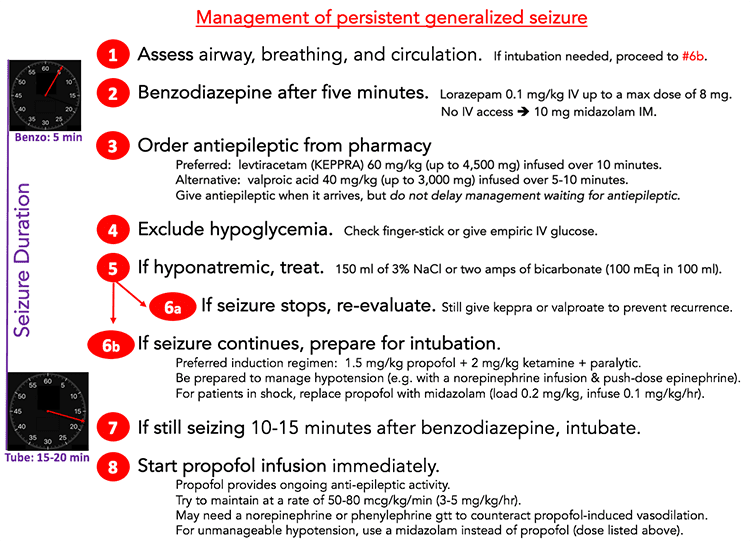Board Review: Lets get cerebral
A 22-year-old male with a history of seizures arrives to the ED via EMS for generalized seizure lasting 10 minutes. Multiple doses of benzodiazepines given by paramedics enroute were ineffective in stopping the seizure. You order an antiepileptic medication. As you prepare for intubation, what is the most important diagnostic test you should perform next?
A. EKG
B. Arterial Blood Gas
C. EEG
D. Accu-check
D. Accu-check. Your ED team should be obtaining an accu-check at the bedside stat. Hypoglycemia is a common, easily testable, and easily correctable cause of seizures and therefore should be done immediately after arrival to your ED. This is status epilepticus, which is officially defined as seizure lasting > 5 minutes or at least 2 seizures without complete return to baseline in between. The differential for this diagnosis is broad, ranging from intracranial hemorrhage to TCA overdose to eclampsia. Don’t anchor on a past seizure history and assume the patient is simply noncompliant with their home anti-epileptics as you may very well miss a new disease process at play.

https://emcrit.org/pulmcrit/status-epilepticus-2/
See this past EM Daily post for a quick review of go-to medications for status epilepticus: https://emdaily.cooperhealth.org/content/status-epilepticus-go-meds
